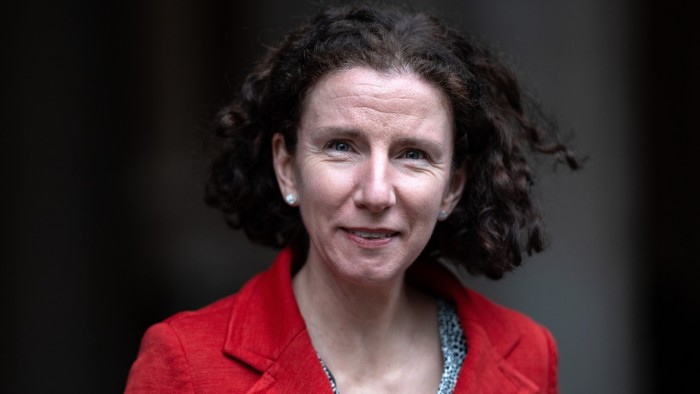Unlock the Editor’s Digest for free
Roula Khalaf, Editor of the FT, selects her favourite stories in this weekly newsletter.
International development minister Anneliese Dodds resigned on Friday in protest at Sir Keir Starmer’s decision to fund a £6bn defence spending increase by slashing the UK’s aid budget.
“Ultimately, these cuts will remove food and healthcare from desperate people — deeply harming the UK’s reputation,” Dodds said in a letter to the prime minister.
Starmer said this week the annual increase in military spending by 2027 would be funded entirely by cutting the UK’s £15.3bn aid budget from 0.5 per cent of gross national income to 0.3 per cent.
His move preceded his visit on Thursday to US President Donald Trump, who has called on Washington’s Nato partners to increase defence spending.
Trump’s administration has also all but shut down the US Agency for International Development, the main channel for $43bn worth of US aid and development programmes a year.
“I know you have been clear that you are not ideologically opposed to international development,” Dodds wrote to Starmer. “But the reality is that this decision is already being portrayed as following in President Trump’s slipstream of cuts to USAID.”
It is with sadness that I have had to tender my resignation as Minister for International Development and for Women and Equalities.
While I disagree with the ODA decision, I continue to support the government and its determination to deliver the change our country needs. pic.twitter.com/44sCrX2p8z
— Anneliese Dodds (@AnnelieseDodds) February 28, 2025
Before winning power last year, the Labour party had denounced cuts to international aid made by the previous Conservative government.
Starmer said this week the increased defence spending would take the UK’s overall military budget to 2.5 per cent of GDP.
He added that in the next parliament, expected to run from 2029 to 2034, the UK would seek to hit a level of 3 per cent of GDP.
“3 per cent may only be the start, and it will be impossible to raise the substantial resources needed just through tactical cuts to public spending,” Dodds wrote. “These are unprecedented times, when strategic decisions for the sake of our country’s security cannot be ducked.”




